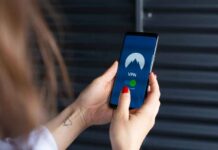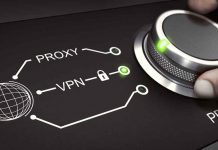Imagine this scenario – you enter a coffee shop anywhere in the world, and what do you see? The answer is dozens of people on their laptops and phones, just typing away. From students and freelancers to business people who just dropped by to grab a cup of coffee, everyone uses public Wi-Fi. Unfortunately, most are not aware of the dangers of free hot spots.
Public Wi-Fi usually doesn’t have high security, meaning that it is probably not encrypted. It invites cybercriminals to use public Wi-Fi for nefarious reasons. Luckily, there are tools like a VPN and antivirus software that help minimize the risk. If you want to know more about public Wi-Fi and how to protect your devices, keep reading!
The risks of using public Wi-Fi
With around 549 million public Wi-Fi hot spots worldwide, it is obvious why users choose to connect to them when they need to check something online. Unfortunately, most of these hot spots are completely unsecured. Here are some of the risks you might be facing if you use public Wi-Fi often:
Malware
Spreading malware on public Wi-Fi networks is incredibly easy. Hackers infect devices via a simple popup ad. At first glance, it might look like any ad you see while browsing the web. However, if you decide to click on it, you will end up with unwanted software on your phone or laptop.
Data breach
A data breach could be the biggest risk of using public Wi-Fi. It means that hackers will have access to pretty much any file you have stored on your laptop or phone. All your documents and photos could be up for grabs. Not to forget that your login information will be exposed. It might result in an enormous problem if this happens on your business laptop.
Identity theft
Identity theft is not uncommon on public Wi-Fi networks. Cybercriminals might steal your data, including your name and financial information. It could create several issues because once cybercriminals get their hands on personal data, they could withdraw money from a credit card and apply for various loans.
Minimizing the risk
The best thing you could do is stop using public Wi-Fi altogether, but we know that’s impossible. Finding the right way of minimizing the risk is the next best thing. So let’s see how you can protect your devices:
Use a VPN
Using a VPN service is recommended if you tend to connect to public Wi-Fi regularly. This nifty tool can encrypt all the data you send or receive while using the internet, making it impossible for anyone to spy on you.
Once you launch a VPN on your device, the app connects you to a remote server, and all the information goes there first. A VPN is valuable to remote workers as well. It will make their connection safer and prevent any man-in-the-middle attacks.
Install antivirus
Antivirus can’t encrypt your connection like a VPN, but it will protect you from malware. This software detects any viruses or malware before they breach a system. If you are serious about online security, you already know that antivirus will notify you if it registers any suspicious activity on your laptop or phone.
But remember this – antivirus will work well if you update it regularly. Brand new malware appears every single day, so you have to perform updates even if it seems inconvenient at that time.
Enable the firewall
Many of us keep the firewall off, but that is a huge mistake. The frequent pop-ups could annoy the best of us, and many users forget that their firewall is off. However, it is a great tool that creates a safety zone around your device.
A firewall monitors network activity and shared information. If it sees anything strange, a firewall will block that to ensure your device is secure. Of course, you can’t use a firewall as the only protection from malware and other security attacks. Make sure you install antivirus and a VPN too.
Quick tips for staying safe on public Wi-Fi
Of course, there are more quick tips that will make public Wi-Fi spots way safer. Here are some of them:
- Turn off automatic connection: If you remember a public Wi-Fi network on your phone or laptop, your device will automatically connect to it the next time you are around. Make sure you turn off this option because you might end up on a public Wi-Fi network without even realizing it.
- Use two-factor authentication: Many websites offer two-factor authentication now, and you should use it. If a hacker manages to steal your login information, they can’t access your account without a code. The said code is sent to you either through a phone app or as a message.
- Create your mobile hotspot: If you have cellular data and the option to create a hotspot on your phone – do it. It is an easy way to avoid public Wi-Fi while on the move and have a secure connection.






